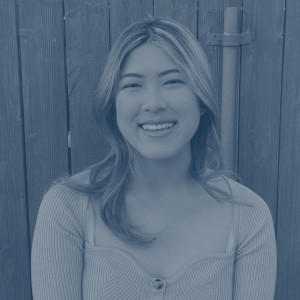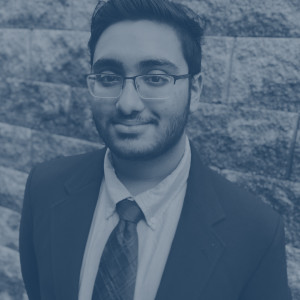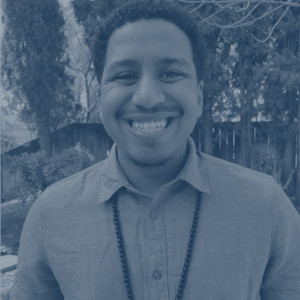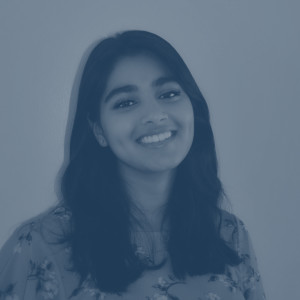Fawziyah Alebiosu, 21
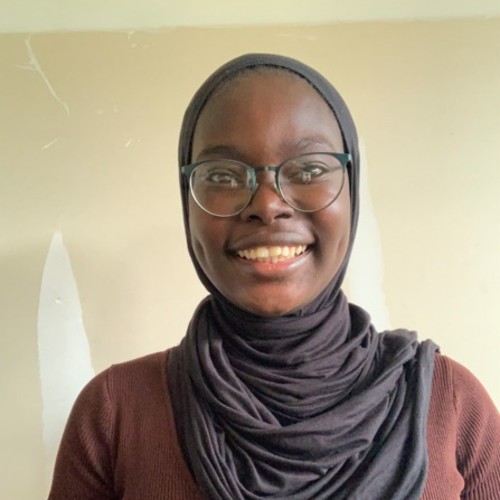
Without a computer science program in her high school, Fawziyah had never considered a career in tech. She thought that she wanted to be a lawyer. She didn’t know why, but she knew she liked talking. And if you like talking, you’d like law, or so she was told. But her idea of her career changed during a science fair when she was introduced to the Girls Who Code program, and was even offered to have her transportation and lunch covered for the summer. Fawziyah was totally fascinated by computer science, an area she had no prior introduction to. This interest paired with the gracious deal was a no-brainer. She applied, got accepted, and finally she had something new to talk passionately about.
During the weeks of the program, Fawziyah began to learn coding that she used to build projects that she cared about, without the added stress of cost. For instance, she built a website dedicated to educating users about sexual assault. She was able to publish the site, already bringing important issues to light at age 16. Being surrounded by other women in tech meant she was surrounded by great mentors that led her through web development, programming, and CS. It was empowering to be around women in tech with access to technology that she did not have previously.
After her completion of the GWC Program, Fawziyah was left with an inkling of coding knowledge and a list of nearby hackathons from one of her peers. She took it upon herself to attend Technica, a nearby event accessible to high schoolers like herself, where she saw just how deep the software engineering industry runs. This was priceless information for Fawziyah who was fresh off of her program with only a bit of an idea of what a tech career could look like. Following the hackathon came a career fair, where she saw that she was already building skills for career paths that she didn’t know were even available. It was unbelievable to her that companies like Google would be at events such as this for the sake of scouting. Though she wasn’t submitting, Fawziyah saw the event through to the end, fascinated to see the people of different ages and experience bring their creations to life. The combination of the two events helped her come to the conclusion that she wanted to work toward the goal of becoming a software engineer like those she had spoken to.
A few hackathons later, Fawziyah joined the MLH Fellowship program in 2020. The virtual curriculum gave her the chance to write code that would be used publicly for the first time. At this point her experience had grown immensely, which she brought to the table at a hackathon where she and her team built a tool that acted as a CRM for your contact book. The project compiled your notes after introduction and even information such as birthdays. They had seen the implementation of this idea previously, but the team set out to put their own personal spin on it. The support that she and her team saw for the project reinforced the idea that building on previous ideas is just as important as entirely new ones. Even if an idea has seen results in one area, the same idea could be built on and brought to a different area and see entirely new results. Comparison to others is a part of growing, but when Fawziyah gets in her head about solving a problem with a fully unique angle, she remembers that hackathon to bring her back to the ground.
In order to give back to the community, Fawziyah works as a teacher and an MLH Coach. For six years, she’s taught web development to students from her high school. The school never had a dev program, so she and a friend that went through GWC made it a goal to bring all that they learned to their fellow students, and it had a lasting impact. They partnered with Google CS First in order to build an appropriate curriculum that covers grades 8-12. In a school with a lot of low-income students, this opportunity has been huge. The students have been able to bring their experience and passion to the county in order to get the necessary funding they deserve. Seeing that students would leave the workshops with a true excitement for coding was an immediate sign to keep with it, returning every Friday. She took it a step further by becoming an MLH Coach so that she can give access to tech through events like hackathons and workshops like MLH Localhost. Knowing more about the process of being behind the scenes has been eye-opening for her. When a group of students came to Fawziyah for advice on a project, she had every answer, and she knew that she was putting her degree and learned skills to use in order to help others.
Having come a long way through the hackathon process, she knew it was time to undertake the challenge of organizing a hackathon. Black Wings Hacks was born in February 2021, an event built to amplify women or non-binary people and the intersection of being a black person in tech. The categories and prizes were designed to encourage impact on the community. Over half of the 250 attendees were first-time hackers, and the event did it’s job to expose many black women to coding. This alone was fulfilling to Fawziyah, who was given so much by her first hackathon. It was hectic, of course, to be the focal point of any questions and concerns throughout the event, but giving new and old hackers access to resources is how Fawziyah has helped for years.
Empathy is important, and Fawziyah continues to learn and build as an empath alongside her community. By seeing the various sects and areas every hacker brings to the table, she subconsciously builds a network of experiences to draw from when necessary. Since the beginning of her time with GWC, she’s become a lot more patient, recognizing the hyper-specific lives of individuals. As a future software engineer and coding professor, a career built on fundamental understanding of the people you create projects for, the skill is invaluable. She’s seen how far reaching the community is through her time with programs such as MLH, and the varied experiences that come with such a large body of interested people in tech. Everybody’s story is important for growth in the community, and the same goes for Fawziyah.
Quick Facts
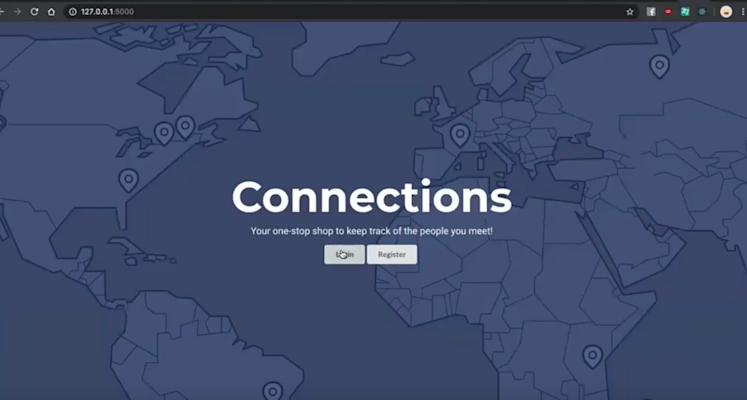
Fawziyah Alebiosu, 21

Without a computer science program in her high school, Fawziyah had never considered a career in tech. She thought that she wanted to be a lawyer. She didn’t know why, but she knew she liked talking. And if you like talking, you’d like law, or so she was told. But her idea of her career changed during a science fair when she was introduced to the Girls Who Code program, and was even offered to have her transportation and lunch covered for the summer. Fawziyah was totally fascinated by computer science, an area she had no prior introduction to. This interest paired with the gracious deal was a no-brainer. She applied, got accepted, and finally she had something new to talk passionately about.
During the weeks of the program, Fawziyah began to learn coding that she used to build projects that she cared about, without the added stress of cost. For instance, she built a website dedicated to educating users about sexual assault. She was able to publish the site, already bringing important issues to light at age 16. Being surrounded by other women in tech meant she was surrounded by great mentors that led her through web development, programming, and CS. It was empowering to be around women in tech with access to technology that she did not have previously.
After her completion of the GWC Program, Fawziyah was left with an inkling of coding knowledge and a list of nearby hackathons from one of her peers. She took it upon herself to attend Technica, a nearby event accessible to high schoolers like herself, where she saw just how deep the software engineering industry runs. This was priceless information for Fawziyah who was fresh off of her program with only a bit of an idea of what a tech career could look like. Following the hackathon came a career fair, where she saw that she was already building skills for career paths that she didn’t know were even available. It was unbelievable to her that companies like Google would be at events such as this for the sake of scouting. Though she wasn’t submitting, Fawziyah saw the event through to the end, fascinated to see the people of different ages and experience bring their creations to life. The combination of the two events helped her come to the conclusion that she wanted to work toward the goal of becoming a software engineer like those she had spoken to.
A few hackathons later, Fawziyah joined the MLH Fellowship program in 2020. The virtual curriculum gave her the chance to write code that would be used publicly for the first time. At this point her experience had grown immensely, which she brought to the table at a hackathon where she and her team built a tool that acted as a CRM for your contact book. The project compiled your notes after introduction and even information such as birthdays. They had seen the implementation of this idea previously, but the team set out to put their own personal spin on it. The support that she and her team saw for the project reinforced the idea that building on previous ideas is just as important as entirely new ones. Even if an idea has seen results in one area, the same idea could be built on and brought to a different area and see entirely new results. Comparison to others is a part of growing, but when Fawziyah gets in her head about solving a problem with a fully unique angle, she remembers that hackathon to bring her back to the ground.
In order to give back to the community, Fawziyah works as a teacher and an MLH Coach. For six years, she’s taught web development to students from her high school. The school never had a dev program, so she and a friend that went through GWC made it a goal to bring all that they learned to their fellow students, and it had a lasting impact. They partnered with Google CS First in order to build an appropriate curriculum that covers grades 8-12. In a school with a lot of low-income students, this opportunity has been huge. The students have been able to bring their experience and passion to the county in order to get the necessary funding they deserve. Seeing that students would leave the workshops with a true excitement for coding was an immediate sign to keep with it, returning every Friday. She took it a step further by becoming an MLH Coach so that she can give access to tech through events like hackathons and workshops like MLH Localhost. Knowing more about the process of being behind the scenes has been eye-opening for her. When a group of students came to Fawziyah for advice on a project, she had every answer, and she knew that she was putting her degree and learned skills to use in order to help others.
Having come a long way through the hackathon process, she knew it was time to undertake the challenge of organizing a hackathon. Black Wings Hacks was born in February 2021, an event built to amplify women or non-binary people and the intersection of being a black person in tech. The categories and prizes were designed to encourage impact on the community. Over half of the 250 attendees were first-time hackers, and the event did it’s job to expose many black women to coding. This alone was fulfilling to Fawziyah, who was given so much by her first hackathon. It was hectic, of course, to be the focal point of any questions and concerns throughout the event, but giving new and old hackers access to resources is how Fawziyah has helped for years.
Empathy is important, and Fawziyah continues to learn and build as an empath alongside her community. By seeing the various sects and areas every hacker brings to the table, she subconsciously builds a network of experiences to draw from when necessary. Since the beginning of her time with GWC, she’s become a lot more patient, recognizing the hyper-specific lives of individuals. As a future software engineer and coding professor, a career built on fundamental understanding of the people you create projects for, the skill is invaluable. She’s seen how far reaching the community is through her time with programs such as MLH, and the varied experiences that come with such a large body of interested people in tech. Everybody’s story is important for growth in the community, and the same goes for Fawziyah.
Quick Facts

